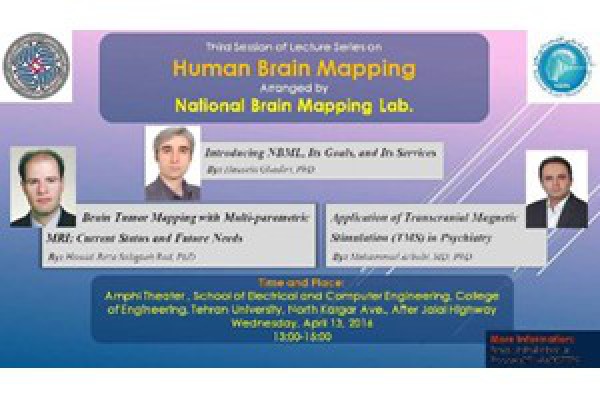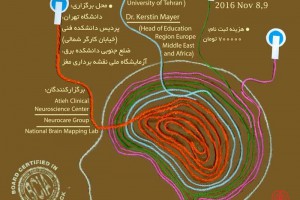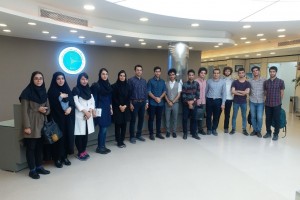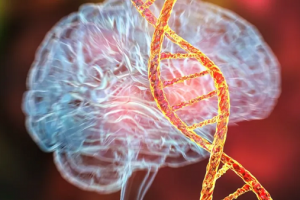The Report of Third Session of Lecture Series on Human Brain Mapping Arranged by NBML
Lecturers: Hossein Ghadiri, Ph.D. ; Hamid Reza Saligheh Rad, Ph.D. ; Mohammad Arbabi, MD, Ph.D.
Lecturers: Hossein Ghadiri, Ph.D. ; Hamid Reza Saligheh Rad, Ph.D. ; Mohammad Arbabi, MD, Ph.D.
Hossein Ghadiri, PhD (Deputy of Human Resource Management and Development Department, NBML; Assistant Professor, Medical Physics, Dept. of Medical Physics and Biomedical Engineering, Tehran University of Medical Sciences)
Title of the Talk: Introducing NBML, its goals, and its services.
Hamid Reza Saligheh Rad, PhD (Assistant Professor, Medical Physics, Dept. of Medical Physics and Biomedical Engineering, Tehran University of Medical Sciences)
Title of the Talk: Brain Tumor Mapping with Multi-parametric MRI; Current Status and Future Needs
Abstract: The brain is the most complicated organ in human body and each region of the brain controls a specific function. Any damage to the human brain can cause a dysfunctionality which may persist during the lifetime of that person. For years, neurosurgeons have had a rough map of the brain based on references and according to their expertise, but this map has never been that accurate that they could be certain about how to avoid every critical area of the brain during the surgery. This is because in each person, the brain and most importantly the tumor is unique, causing variations in the map. This fact, combined with the sheer complexity of the brain, has challenged neurosurgeons for years.
During the past decades, conventional MR imaging techniques, providing morphological information about the tumor, were the standard for pre-surgical planning. However, it became evident to the scientists that the variations arising from functional and physiological characteristics of the tumors can impair optimum surgical outcome. To avoid the critical brain portions, functional MRI and diffusion tensor imaging (DTI) must be performed prior to the surgery. Furthermore, diffusion- and perfusion- weighted imaging and magnetic resonance spectroscopy must be performed and integrated with each other to detect the extent of tumor infiltration in the normal tissue and to characterize the properties of the tumor in terms of cellularity, angiogenesis, and changes in the microenvironment based on chemical compounds. The art of combining the images in an optimum way to get the most possible information about the tumor to devise the most suitable pre-surgical plan is termed as “Pre-surgical Brain Mapping”. Through groundbreaking research worldwide, advanced brain mapping techniques based on multi-parametric MRI information have enabled surgeons to remove as much of a brain tumor as possible while minimizing the impact on the crucial areas of the brain that control movement, speech and the senses.
Mohammad Arbabi, MD, PhD (Associate Professor, Psychiatric, School of Medicine, Tehran University of Medical Sciences)
Title of the Talk: Application of Transcranial Magnetic Stimulation (TMS) in Psychiatry
Abstract: Transcranial Magnetic Stimulation (TMS) is a non-invasive means of stimulating nerve cells in superficial regions of human brain and recently has been applied to a growing number of psychiatric disorders as an investigational and therapeutic tool. TMS induces small electrical currents in the cerebral cortex based on Faraday’s law of electromagnetic induction. Since in psychiatry, the existing medicines are not sufficiently effective for treatment, the usage of the modern and advanced technique is more desirable. The treatment of mood mood disorders and depression using TMS has attracted the most interest to date in psychiatry. There are some evidences that show TMS is likely to be best applied in treatment of non-responsive patients to medicine. However based on reported, for aged people and those who have long-term depression or deeply qualm, it may not be useful. There is also no evidence to show whether TMS is an effective treatment tool for infants and teenagers disorders. Although the application of TMS in brain disorder treatment has attracted many attentions, it has a considerable role in human mapping related studies and neuropsychiatric research.










Related Posts